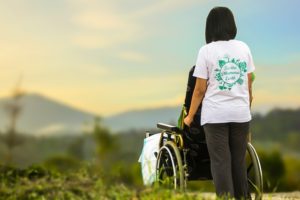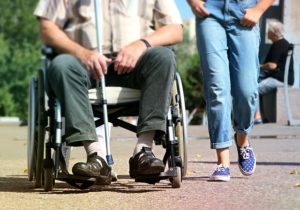
As Alzheimer’s worsens over time, going from early stages to advanced, the responsibilities of the caregiver grow as well. Alzheimer’s network program and services is here to help.
Alzheimer’s disease is a progressive degenerative disease that not only affects the individual with loss of memory and cognitive abilities, but it also creates stress and significant hardships on the family who are often caregivers for their loved ones. As Alzheimer’s worsens over time, going from early stages to advanced, the responsibilities of the caregiver grow as well. All too often they are not prepared nor do they have an outlet to help them cope with the progressive loss of their loved one. Alzheimer’s network program and services is here to help.
At Alzheimer’s Network of Oregon, our vision is to help create an enlightened and empowered community where no one walks alone. Our mission is to provide compassionate support, education, and outreach to those impacted by Alzheimer’s disease and other related dementias.
Alzheimer‘s Network of Oregon Adult Day Center- To open the Fall of 2017!
Our adult day center can help to make a difference in a caregiver’s life. For those that need respite care services, we offer a safe, nurturing environment that will promote interaction and socialization for their loved one. Our day center will allow the caregiver to take care of errands, take a much-deserved break during the day for personal time, while feeling secure and confident that their loved one is safe and in good hands.
Our other programs and services include:
Music and Memory iPod program
Alzheimer’s Network is proud to be able to offer the Music and Memory program to individuals. We know that music has the power to positively influence those with Alzheimer’s disease and related dementias. Music creates moments for these individuals that elicit a positive interaction or emotions that facilitate cognitive function and stimulation.
Music Therapy
Our music therapy classes actively involve individuals in playing instruments and singing. Through their participation, they engage, laugh, sing and have fun.
Memory Screenings
We offer private memory screenings for individuals that are interested. The results are private and given to the individual to share with their Physician if warranted. It is not a diagnosis but merely a tool to be used to discuss with your clinician if you have other concerns.
Monthly Support Groups
Alzheimer’s Network offers monthly support groups for caregivers to meet with others that are in similar circumstances.
Care Navigation, Information and Referral Services and Educational Classes
We also offer educational classes and symposiums for caregivers, health care professionals and others that are interested.
Article Provided by:
Alzheimer’s Network
503-364-8100
www.Alznet.org
Search Retirement Connection Listings for Residential Care Facilities
Search Residential Care Facilities for Grants Pass
Search Residential Care Facilities for Klamath Falls
Search Residential Care Facilities for Medford
Search Residential Care Facilities for Roseburg



